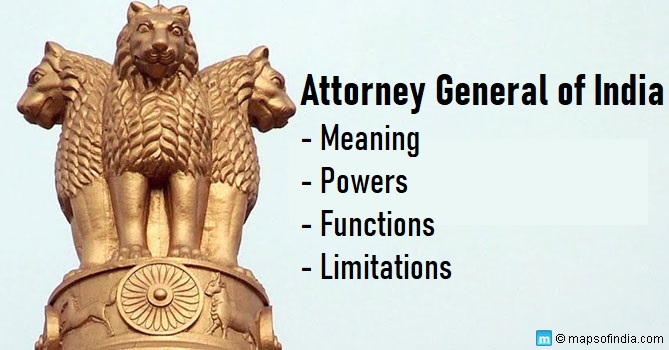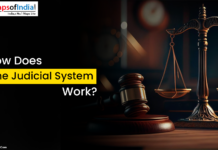Have you ever wondered who gives legal advice and fights for the central government in the courts of India? It is the Attorney General of India who assists the government on various legal matters about them.
According to Article 76 of the Indian constitution, they are the senior-most law officer of India and is a Union executive member. The President of India appoints the Attorney General of the country.
When it comes to eligibility, they must pass the qualifications to be appointed as a judge of the Apex Court. They must be citizens of India and must have been a judge of some high court for five years or an advocate of some high court for ten years, or a prominent jurist, from the President’s perspective. The constitution does not fix the terms of the office.
Generally, the tenure of the Attorney General is three years. However, recently, on June 30, 2021, the government of India reappointed KK Venugopal as the 15th Attorney General of India as he had asked the central government to give him a one-year tenure considering his advanced age.
The department of Legal Affairs under the law ministry issued a notice which said, “The President is pleased to reappoint Shri K K Venugopal, Senior Advocate as Attorney General for India for a period of one year with effect from July 1, 2021.”
Venugopal succeeded Mukul Rohatgi (who demitted the office stating personal reasons) and took charge as the Attorney General on July 1, 2017. He had worked as Additional Solicitor General in the Morarji Desai government. In addition, he serves as a doyen of the Supreme Court Bar and an authority in Constitutional Law.
What are the duties and functions of the Attorney General of India?
- They represent on behalf of the government of India in the Supreme Court or any High Court in all the cases about the government of India.
- They represent the government in any reference stated by the President of India to the Apex Court under Article 143 (Power of the President to consult the Supreme Court) of the Constitution.
- They discharge the functions placed on them by the Constitution or any other law.
Following are the limitations of the Attorney General of India
- They should not recommend or hold a brief against the government of India.
- They should not recommend or hold a brief in cases in which he is requested to advise or represent the government of India.
- They should not safeguard accused persons in criminal prosecutions without approval from the government of India.
- They should not accept an appointment as a director in any company or corporation without approval from the government of India.
The limitations are mentioned to comply so that there is no conflict of duty. The Attorney General has the prerogative to speak and attend both the Houses of Parliament, i.e. Rajya Sabha and Lok Sabha. However, they have no right to vote when he takes part in the proceedings of the Indian Parliament.
Like a Member of Parliament, they also enjoy all powers related to privileges as the Member of Parliament and is not called a government servant.




